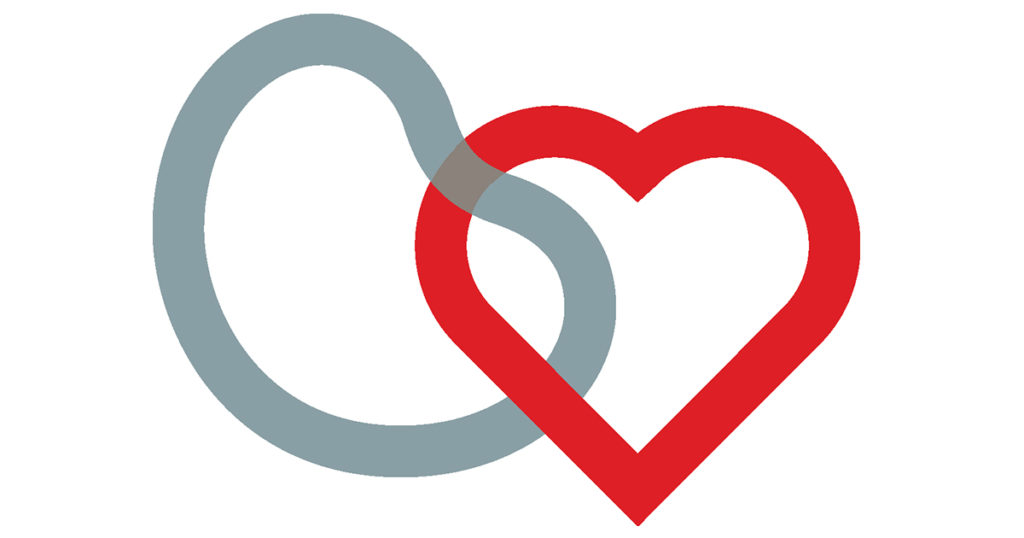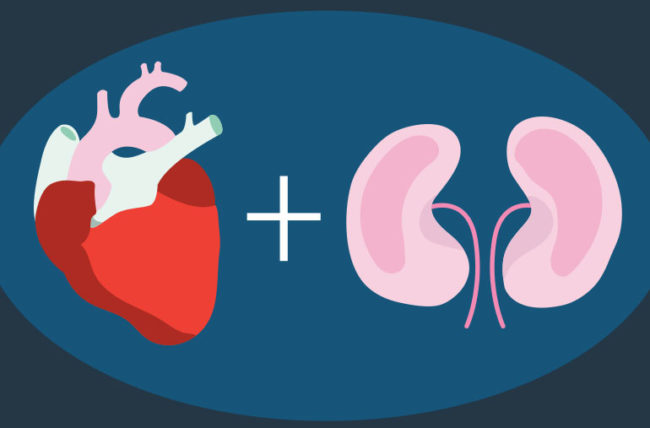
There is a general saying that if all organs of the body stopped working, the kidneys would still work. the kidney. On the other hand, if the kidneys stopped working, all organs in the body simply stop working as they should. One of these organs of the body is the heart. For someone to be certified as being clinically devoid of life, the heart must be determined to not be pumping blood at all. A silent heart.
For this reason, managing any disease in the world, known and unknown has a primary goal of sustaining the life of the heart. In kidney damage, that fundamental aim cannot be overemphasized. All measures that we take in the renal (kidney) unit are to protect the heart and to keep it working for longer and in a quality manner.
The heart at any point in time pumps 25% of its total blood volume to the kidneys. This is an interesting fact. That at any time the heart is beating, one beat sends a quarter of the blood volume to the kidneys. I hope this draws your eyes to the close relationship the heart enjoys with the kidneys.
Some of the ways the heart is affected by kidney damage.
Salts of the heart
The heart is only able to pump blood due to its own electrical activity. Think about a car that needs a fully charged battery for it to ignite. In our case, the heart generates its own electrical charge. These electrical waves are what help the heart to pump blood. For this to happen, the muscles of the heart must be willing and able to respond to the electrical activity. So inasmuch as we have a good battery, our engine needs to be in perfect shape for our car to ignite.
Some of the ways that this happens is through the use of salts that we call electrolytes. These salts make it possible for the heart to accept its own electrical activity and thereby pump blood. The main salts here are calcium and potassium. I want us to address potassium in this section.
One function of the kidneys is regulating these salts. Making sure we have just enough to help the heart. Too little and the heart is bored to death. Too much and the heart is too excited. Kidneys are the watchdogs for these and several other electrolytes. When kidney damage occurs, this role of being a watchdog is grossly reduced. We then start retaining these salts in very high quantities.
Even as kidney disease sets in, we are usually eating and drinking just fine. Potassium is found in almost all-natural foods and drinks. In fact, the Food and Drug Administration authority of the United States has made it mandatory for food manufacturers to indicate how much potassium is contained in their food products. Potassium is good for us if our kidneys are working just fine. This is not the case in kidney failure or reduced kidney function.
The body retains potassium which interfere with the ability of the heart to respond to its own electrical activity. This is one way that makes patients with kidney failure at a high risk of cardiac arrest.
A broken heart
The unfortunate truth is that heart disease can cause kidney disease and kidney disease can cause heart disease. They are joined at the hip. Inseparable Siamese twins. When the heart is not working well, it becomes difficult for it to send blood to the kidneys. This blood has oxygen and nutrients for the kidney tissue. If we fail to deliver food and oxygen to kidneys, they will start starving to death, literally and figuratively. This will give us some degree of kidney damage.
In the same vein, when the kidneys are not working as they should, the hormone system is affected. This hormone system is important in regulating blood pressure. This is why your doctor or other health care providers need to be on the lookout for your kidneys whenever a diagnosis of high blood pressure is officially made.
The kidneys, just like the heart, have developed some survival techniques. We saw earlier that the heart generates its own electrical waves. The kidneys on the other hand know that they need constant supply of adequate blood at any given time. For this reason, they have come up with adaptation methods should there be little blood circulating within them.
Therefore, if the kidney tissue is damaged as in kidney failure, there is naturally a poor circulation of blood within the kidneys. For this reason, the kidney cells release a hormone called renin. Renin is a hormone that affects the blood pressure. Through several quick chemical reactions, renin causes the heart to pump harder and the blood pressure to increase so as to take more blood to the kidneys. This increased pumping and increased blood pressure damages the heart muscles and blood vessels. We end up with what we are calling heart disease.
How intriguing! That the heart was there minding its own business, painting its nails red and watching the polish dry and then the kidneys, through no fault of the heart, gave us a broken heart. Why can’t the kidneys just mind their own business? Oh well, I outlined earlier that the heart and kidneys are Siamese twins. We cannot divorce one from the other.

Solutions
Ere we address solutions, I need to draw your attention to the importance of heart disease in kidney disease. Statistics continue to show that the leading cause of death among patients on dialysis is actually heart disease. Whether this takes the dramatic form of a cardiac arrest or the slow nature of progressive heart failure, it is all heart disease, and we need all hands on the deck to prevent it.
Anaemia management
We had previously seen that chronic kidney disease causes anaemia. Anaemia is simply put a low level of red blood cells. We need red blood cells in our body to be able to transport oxygen and food to all organs in the body. One sign of anaemia is actually constant tiredness and when advanced, breathlessness.
Anaemia forces the heart to beat harder than normal and this eventually causes the heart to enlarge. An enlarged heart is not able to contract as it should to pump blood. Therefore, patients with kidney damage whether on dialysis or not must have their red blood cells checked at least every month and medications given as prescribed to boost the red blood cells number.
Blood pressure Control
We have previously looked at high blood pressure at its complications. Chief among those is a stroke and inevitably, heart disease. It is important that we control blood pressure. Both in the general population and among people with kidney disease whether or not they are on dialysis.
Besides medications which must be taken as prescribed, it is vital that we reduce our sodium intake in the diet. Avoid high fat foods as well. See, this is invariably telling us to skip the processed and fast food and make it our business to cook our own meals. These are simple things we can do ourselves. Things that do not require the intervention of the doctor. Reduce the normal table salt intake. Salty foods are an acquired taste which can be unlearnt. We are perfectly able to learn and unlearn habits.
For patients on dialysis, taking blood pressure medications as prescribed as well as attending for your dialysis treatment will save your heart from unwarranted pressure.
Exercise
Leading active lifestyles only serve to reduce the blood pressure and calm our hearts. It is important however that you speak to your healthcare provider if you are starting some exercise regime when you are already in kidney disease. This is because some types of exercise are not advised. Check with your doctor before this step please. Make sure that you are fit to do what you want to do in terms of exercise.
Diabetes
If you have diabetes, this is a double whammy risk for heart disease. The way to wiggle out of this is to manage your blood sugar level. Always avoid high sugar level and low sugar levels. Consult with your diabetes nurse or doctor to know which level of blood glucose is good for you.
Smoking
Besides affecting the heart, nicotine and tar contained in cigarettes directly injure kidney tissue and raise the blood pressure. There are several programs to help one quit smoking. However, you must know the dangers of smoking and be willing to see to it that you quit.
Stress
In the month of May 2021, I have extensively discussed mental health awareness. I propose you have a look at various articles on this blog to help you with mental health matters. All I know as I type this is that the state of your emotional brain affects your physical health. Besides the obvious raise of blood pressure, uncontrolled stress hormones in the body undo the good that the good hormones do. It is vital that we all develop a coping mechanism.
Finally dear reader, it is my sincere hope that now you can relate the kidneys to the heart. It is my special prayer that as you take care of your kidneys, you will know that you are directly taking care of your heart.

Very educative.
This is definitely an amazing piece of healthy information and if put to use would benefit everybody.
So educative
A very informative piece